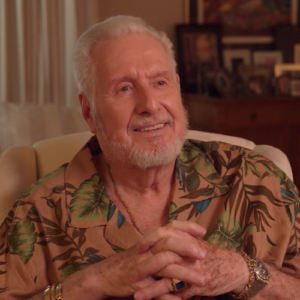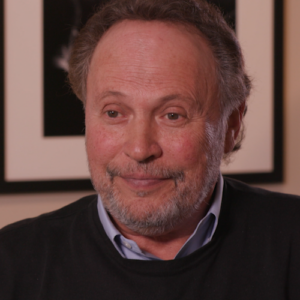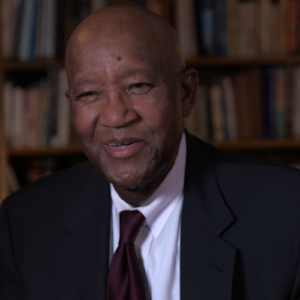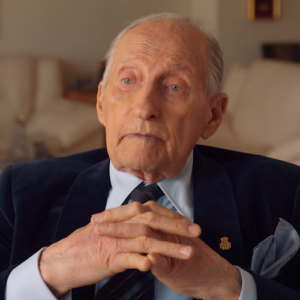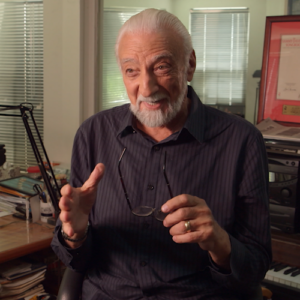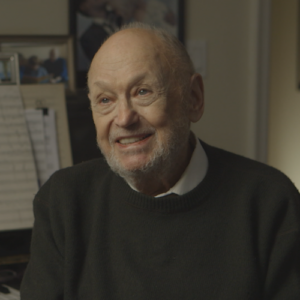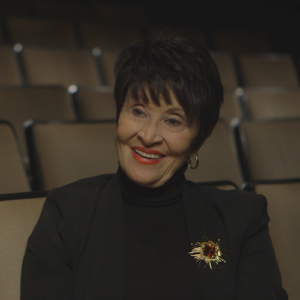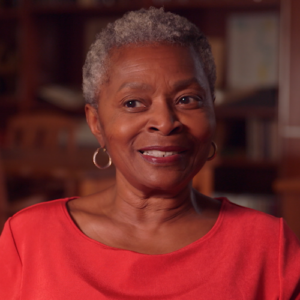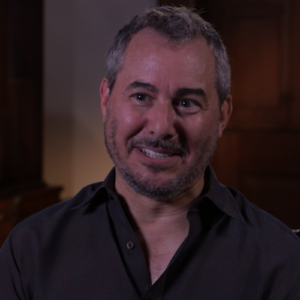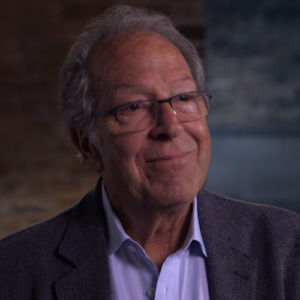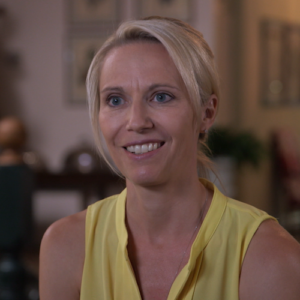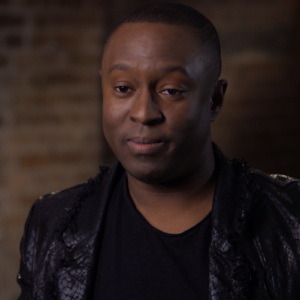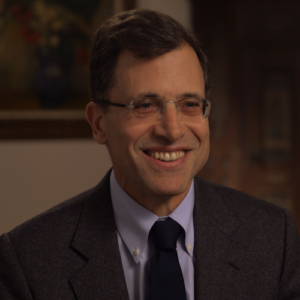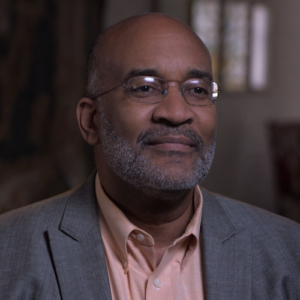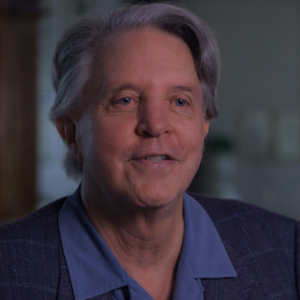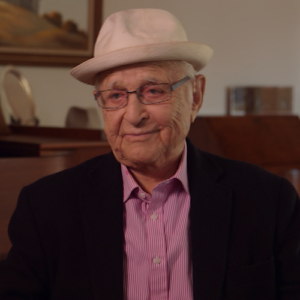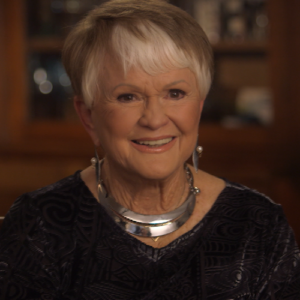Jerry Lewis: Hi there. I’m Jerry Lewis and I’m in Las Vegas at my house with a bunch of strange people who want to start pulling on my body to get information about all the things I know in the world.
Interviewer: Terrific. Now, if you could address it to me. Oh, who is Sammy Davis Jr?
Jerry Lewis: A colored guy.
Interviewer: Set me up. Sammy Davis Jr was…
Jerry Lewis: Sammy Davis Jr was the only performer of his ilk in the history of show business. And there probably will never be another. The talent came from his soul. Most performers bring their talent because it dictates the way they should live their lives. But Sammy was the consummate professional. He got up in the morning and he looked in the mirror and did 10 minutes. He was the constant professional, and the beauty of Sammy’s talent was it was coming from his soul. A lot of people can’t or a lot of people wouldn’t even suggest that’s where their talent comes from. But Sammy turned everything that was negative into a positive. He had such a positive point of view, in spite of the pain, in spite of the indignity, in spite of the disrespect, the disregard, the humiliation, the embarrassment. And on and on and on and on. That’s not all made up with one big audience applauding. It’s never made up to live in a world of of racism like that. I used to pick up Sammy in a limo. I was at the beach. Come Beach, come beachcomber in Florida. Sammy was at the Copa City. I would pick him up in my limo and he would have to lay on the floor so they wouldn’t see him in my car. Okay. Headlining at the Copa City. I had to take him in the the kitchen entrance so they wouldn’t see him. He lived like that for all his life.
Interviewer: When did you first see Sammy Davis Jr perform?
Jerry Lewis: The first time I saw Sammy was at Ciro’s in Los Angeles in around 1950.
Interviewer: What was that performance like?
Jerry Lewis: A hysteria. Absolute hysterical performance. He did 2 hours of nonstop entertainment.
Interviewer: What did you do when the performance ended?
Jerry Lewis: SAT there in shock. You sat like this. Is he done? Yeah, he’s done. You just had a once in a lifetime performance thrown at you, and I don’t know of anyone that I knew. And I have a lot of friends in Hollywood that all said the exact same thing I did after they saw him and they saw the greatness, and they all had the same anticipation that I did. Dear God, let him score. Let him just come up and be that absolute perfect. And he was. He. He was.
Interviewer: You went backstage afterwards. What did you say to him?
Jerry Lewis: I said he has to. If he was white, he’d be better.
Interviewer: Okay. So upset about that. All right. What’s your set up? My question and your answer. I went backstage and said.
Jerry Lewis: Oh, yeah, I went backstage after the show and I had to tell him how amazed I was. And we never left to another side for the next six months.
Interviewer: He said, He said you were like family.
Jerry Lewis: Oh, yeah.
Interviewer: Why is that?
Jerry Lewis: Well, because everything I did, he wanted to do. I said, You’re never going to find an Italian singer, so you can’t do that. But everything that he saw me do, I walk into a camera shop and spend $11,000. And Sammy was still looking to earn a buck. But as he developed, he did everything I did clothes. I mean, I had somewhere between 102 hundred suits a year, made 24 tuxes shirts come with three four dozen a clip. And then he called me one day and he said, Why am I sure it’s costing me $4,000? I said, Because you want the best and you have to pay for the best. And the only thing he did that I didn’t do was cook. He was a fabulous cook. We would do two shows a night at Bally’s, and at three in the morning, he’d be making us sell them fried chicken in the suite upstairs in the Bally. Almighty. It was incredible.
Interviewer: Now, Sam, he did find an Italian. He was Frank Sinatra. Oh, yeah. What was what was their relationship really like? Frank and Sammy.
Jerry Lewis: Well, Frank, Frank felt that Sammy needed that kind of friend. He needed that kind of support from people like Frank and like myself. That gave him great impetus, gave him great feelings of wanting to do better and do more. And he did. He made friends with all of the people that would give him something or teach him something. He was a constant student of the business. And then I would watch him in a rehearsal and I’d see him doing all my shit. That son of a bitch just stealing my act. Six.
Interviewer: You did give him a lot of advice.
Jerry Lewis: Constant.
Interviewer: He had a nickname for you. Do you remember what it is?
Jerry Lewis: Bill? I think no.
Interviewer: Preacher.
Jerry Lewis: Or preacher.
Interviewer: Yeah, Yeah. Tell me about you and you as the preacher.
Jerry Lewis: Well, because whenever he and I would talk about the business, I’d be correcting him. But I always said to him, this correction I’m giving you, you will never hear from me again. Because if you don’t nail it, I’m never going to tell you anything again. And and he respected my knowledge. I had been performing at the time I met Sammy. I had already been performing 30 years. And and the lessons that I got from my dad was like going to Brandeis University. Or I’d see the education that I got from my dad is inconceivable. Frank, Quick check of the London Royal Academy said to me, Your father. Sounds to us like he was an apostle, as he was. It was just that my father taught me about the importance of respecting your audience. Don’t want go on stage believing they’ll be there because you’re their bullshit. They’re there because they want to see you. And you better treat it with infinite dignity. And you go out on that stage for one purpose. It’s to entertain that audience.
Interviewer: Sam, Senor and Will Mastin. What did they teach, Sammy?
Jerry Lewis: Well, Sam, Senor and Will Mastin were the two old timers that could give him all the information about the past. And I used to say to Sammy, get the pass out of your head. You have to concentrate on now. And what you’re doing now. Forget how good it was eight years ago. Now make it good now. So it became preacher Every time I open my mouth. Preacher? I said I love you. I’m not going to be. I’m not going to be some some kind of schmuck that sits there. And when everybody yells, terrific, he yells, Terrific. I’m telling you what I know from my heart. And I would talk to Sammy from a place men don’t talk from. Men in general don’t go there. But I loved him so much and cared so desperately for him. That I used to dig so deep that after we left one another, I’d have a headache. So he used to send me aspirin every couple of weeks.
Interviewer: All right. You and Martin were the you and Martin. The parties were the top notch nightclub act motion picture. And then you went on to make motion pictures in the fifties. Sammy was a top nightclub act. He tried to become big in pictures.
Jerry Lewis: He did.
Interviewer: Okay. To talk about that a little bit. Sammy was big in pictures.
Jerry Lewis: Well, Sammy was Sammy was part of the picture pattern because he was part of the friendship pattern, and he knew that. But when it come when it came to performing, that’s when everyone realized that’s why he’s here. His sense of timing was so unbelievable that a man like myself who lives with timing, I get up from sleeping at night and I got to make sure that the that the cover goes here and that my legs are over there. And it’s all to do with timing. And that was one of my dad’s teachings. Don’t ever forget your timing. Rehearse it, think it, do it, be it. And you spend enough years learning that. Then when somebody says, What do I do? I let you know that I learned. Like one night I did a show at the. At Caesar’s Palace. And my mom and dad came backstage after the show and I said, Dad, it’s the best show I will ever do in my entire career. And it was I was I was on for like two and a half hours. And everything I did was a home run, everything. And my dad looked at me and said, Well, it wasn’t a bad show for an amateur. I said, What the hell are you talking about? I just did the best show of my life. You’re calling me an amateur? He said, when you turned around and placed your back to the audience to get a laugh from your band, that was an amateur. And I never did it again.
Interviewer: Sami used to end his shows by impersonating you.
Jerry Lewis: Yeah.
Interviewer: How did that feel?
Jerry Lewis: Yeah. He would always finish his show impersonating me, and I would give him after a show. I’d say, Let’s rehearse that once because you haven’t got it yet. And he and I had fun together. But the most important time together we had was the learning process. And he admitted to me 100 times. He said, I think our friendship is the most important thing in my life. He said, But without you, I’d probably be 25 years to get to where I am now. And and between Frank and myself, we gave him the kind of an education that you would have to go Carnegie Tech to get it.
Interviewer: How transgressive, how subversive was it when Sammy started imitating white, famous actors?
Jerry Lewis: It didn’t bother me.
Interviewer: Other people?
Jerry Lewis: No, no. A lot of people took the black issue too far. And the black issue is something that we’re living with for 400 years. And I keep beating him over the head. You’re not a black man going on a stage. You’re a wonderful short one, I Jew that goes on a stage and don’t forget it so that you will never go out there without humility. He said you’re five foot four for a year of. A midget. That’s a colored guy. Holy. You couldn’t get a room to sleep in in Columbus, Georgia, for say they’d shoot you as you were signing in your register. But we laughed about the racism you had to because there was no way to correct it. The only thing that Sammy had was his ability to make you understand. He’s just a man. A man Short, I’ll agree, but a man.
Interviewer: There’s a Sam, there’s a Sammy quote. I’ll make them like me, even if they hate my guts. What does that mean?
Jerry Lewis: Well, I think what he meant was his talent will prevail and that he’s not bringing them moments of rhetoric. He’s not bringing the audience information that’s all stylized and all of that stuff. He was bringing his own love of doing what he was doing for them. See what Sammy did all of his career was for them. He did very little for him, but he got it all from them. He was the purest. He was almost godlike as far as I was concerned, because I watched the change from walking past that door to this door. And I watched him become my friend, Sammy, to this powerful performer who walked out there and electrified 2000 people. I watched that for 40 years and he just got better. Now, how can you discuss how good the timing was? Timing is not something you can grab or touch or feel, but when you when you refer to it, it’s because he got to you. And, you know, I can recall maybe 100 times that I was voiceless after a show. I couldn’t say anything. I watch his performance and I say, What do you do now? How do you top that? And he just kept topping it. I think at the roughest moment I had with Sammy was on his deathbed. The doctors had told him if they take his vocal cords, he can live a full life. And I’m sitting next to him in his deathbed and I’m saying they’re waiting for an answer, Sam. Are they going to operate or you’re going to just die? He said, If they take my vocal chords and I can’t sing, I’d rather die. And he did. Two days after that, he died and was happy knowing that he didn’t have to live without letting his voice work. He was very, very credible man. Very, very credible with tremendous dignity and respect for what he did and respect for the audience that came to see him.
Interviewer: One of his last performances was one on your Muscular Dystrophy telethon. You were here in Vegas. He was by remote New York. He sang a song from Les Miserables. I believe that song was I Dreamed a Dream. He knocked it out of the park, of course. He says, I’ll see you next year. Jerry, did you know you may not see him next year at that point?
Jerry Lewis: Oh, no. He didn’t have cancer then. That all happened within a matter of months. Well, he had the unmitigated gall to ask me what to do. I said, I’ll tell you what to do. Lay here as an invalid. What you can’t sing. How long you want to lay here. This is what this is. You’re looking at the scoreboard in a baseball game. You got to find out who’s winning by the numbers up there. I said, Sam, you have to do what you do when you need to do it. Talent like yours cannot be in any way. Yeah. Red relegated to there or there. He didn’t take it and move it. It was wherever he was. And he had such a good heart. He felt badly for the people out there that didn’t like black people. He felt for them. He felt that they were ignorant. They were never taught. He would point to me and say, How come you’re not like that? I said, I was not taught to be like that. I wasn’t born in Columbus, Georgia. I was born in Newark, New Jersey, where a black kid would be riding my bike with me. I never knew there was a difference.
Interviewer: Want to talk about one of his TV performances. Well, you hosted the Eddie Cantor show, right? I mean, the Colgate Comedy Hour. Right. Eddie Cantor hosted it as well. The Will Mastin Trio with Sammy Davis Jr danced up a storm. Sammy was very sweaty. Afterwards, Eddie Cantor mopped his eyebrow, his his forehead with a handkerchief. Eddie Cantor got a lot of hate mail for that. Why? Why? Why would that happen?
Jerry Lewis: Because you have 400 years of slavery. Eddie Cantor wiped his brow and then they they. Beat it out of a. Racism hasn’t been fixed yet. As far as I’m concerned, it’s still fierce and violent. And I don’t know how to say to someone that’s a racist. Don’t be. He doesn’t know what they’re talking about. He doesn’t even know who he is. But his hate is so strong that he can’t adjust it. It’s got to be that way. Well, when you’re three and four years old and you have a mother and a father pounding at your that he’s black. He’s black. He’s black. You find out what racism is fast. And the sad thing was that he brought so much pleasure to the very country that was racism. When Sammy went to play in Europe, he never wanted to come back. He would talk to me from London, from Rome. I would talk to him in Copenhagen. I would talk to him in in, in, in in every city I was in in Europe. And he was flying because there was none of that shit. And he would walk out to an audience of 25,000 people at the Berlin Arena. And. It’s. And shut an audience down. The thought processes went away. All they thought was, look at this miracle. He’s a miracle vocally personality. Everything about him. We walked on stage and everybody knew he wanted to be there. And everybody knew that he came there because they’re paying him. But if they didn’t pay him, he’d still come.
Interviewer: One time in Europe. He was there to shoot your film one more time.
Jerry Lewis: Yeah.
Interviewer: You described it as ten weeks of pure ecstasy.
Jerry Lewis: Oh, yeah.
Interviewer: Why? We’re shooting that film with Sammy so much fun.
Jerry Lewis: Well, because when you’re a director and you have a great actor, your life is complete. The magic of directing Sammy Davis Jr. You didn’t know what it meant until it was over. And you could sit and reflect and you just had. The epitome of excellence. Of your talent put through him. And I had the best nine months of my life. I did rewrites every night. I wrote another sketch every night because when I saw him do today, he can do that again. But this way it was constant. Then when I was editing the picture I was in, I was in the editing room seven months. 28 weeks of frame by frame by frame. Now, we made that film for United Artists in 1970, I think, around that. And two weeks ago, United Artists sent me a half a dozen copies of one More Time. I asked them for 30 years ago, I.
Interviewer: Sammy loved London.
Jerry Lewis: Oh, God, yes. Because London and all of Europe freed him. He was free. Because everything that Sammy did in his life was. Sammy hear racism there? Then is performance. And there was one night we were working at the Bailey and I said, There are nights when you feel like racism’s going to beat you. He said, Never, never. I never think of being black except when somebody says, Move that son of a luggage. And he was able to handle that stuff because he learned over the years what I told him, plus what his dad taught him. And these are sick people. They’re sick people. You want to talk about Koresh? You want to talk about a guy killing 65 people? For what reason? Christine Warrior One another. So they weren’t worth anything. Who knows what people are and who wants to know? But the good thing about knowing is it’s not bad to know one enemy when he’s walking towards you. It’s good to know where they are. Just keep them at bay. And then the preacher would be busy. You’re a.
Interviewer: Oh. Something else that gave Sammie a sense of freedom was Judaism.
Jerry Lewis: Yo-Yo.
Interviewer: Why did he converted to Judaism?
Jerry Lewis: Because he wasn’t doing great as a Negro. The reason he turned to Judaism was because he got so much support and so much love from that community that they drew him in. And so did I. I didn’t know I was doing that. But the best part of Sandy was Jewish.
Interviewer: Who was his rabbi? Huh? Who was his rabbi?
Jerry Lewis: Pope Francis.
Interviewer: Did you say Sammy’s rabbi was? Yeah. Okay, sure. Go ahead.
Jerry Lewis: The Pope was with Sammy’s rabbi.
Interviewer: On a more serious note. The car accident?
Jerry Lewis: Yeah.
Interviewer: Tell us about that, please.
Jerry Lewis: Well, I got a call at three in the morning. From where it happened in California. And I hired a plane and flew there fast. And all I did was sit with them for seven days. Never left his room. And we talked about seeing half of life. I said, Just promise me you’re never going to wear a patch. Cross a little colored guy that’s also a pirate. Does it make sense? He wore the patch just till they till they did a good surgical job on the honor. The guy that replaced the good one. It was tough, period. Tough. You have to learn to rebalance your whole life, no less. What’s happening here in your brain? Well, I. I think I said to him that night, I said, if God wanted a really punisher, he’d have made your blind in both eyes. But he figured you’re still doing some good. So just one.
Interviewer: Oh, boy. It’s great. It’s great. I want to go to I want to jump ahead to Bally’s or Bally’s, 1988 at Bally’s. You performed with Sammy at Bally’s. He referred to as his best friend. Can you comment on that.
Jerry Lewis: Being his best friend?
Interviewer: Yeah.
Jerry Lewis: Why does the president of the United States that taps a little boy on the head? Why do the parents think the little boy is now special? Same thing. Exact same thing. Sammy was of all of the things we can say about him. The most critical element in Sammy’s life was his sensitivity. His understanding of what racism was, and he almost forgave him. And I said to him, Why would you forgive him? He said, Because I have no I have no recourse. What am I going to do? Blast them? I’ve been blasting them all my life, so now I’m going to save the rock. So he was he was working very, very hard at understanding his lot in life. When it came to going on stage, you didn’t bring any of that stuff. He brought all of his theatrical knowhow and entertained an audience like they’ve never been entertained in their lives.
Interviewer: Sammy was multi-talented. But in life. In life. What is it? Sammy could not do nothing.
Jerry Lewis: Nothing. If you wanted to see him skydive while swimming below the ocean, he’ll do it. Or at least give it a try.
Interviewer: Oh. How is Sammy? With money?
Jerry Lewis: Terrible. I would. I go into my tailor and order nine suits that were $65,000, and he’d say, When am I going to do that? I said, As soon as you get some work. Why do you want to do it? I do it because I’m fucking nuts.
Interviewer: Well, one of his one of his gigs. Was he.
Jerry Lewis: Right?
Interviewer: One of his one of his gigs was the Sammy Davis Jr show. You hosted that show, huh? You did impersonations of Sammy. You joked about his absence. What was it like hosting the Sammy Davis Jr show?
Jerry Lewis: Terrific.
Interviewer: It set me up.
Jerry Lewis: Hosting Sammy Show was terrific. None of us thought it was going to last very long, but we wanted to help him. And, you know, television. Take some of the humanity out of it. When you see him on stage in a theater, you’re seeing another Sammy, then the one that’s on television. Different man. He brought a different ability. To the stage that he didn’t bring to television because it was different. He couldn’t feel the connection with his audience like he did in a theater. And I would say to him, you have to start regulating your mind that that’s just as important as the theater. You got to start getting that to work. So I was constantly preaching. He said, Are you ever going to tell me anything? I do? That’s good. I said, You, you got enough of that?
Interviewer: Sammy gave you a ghost voice?
Jerry Lewis: Yeah.
Interviewer: Tell me about that. How did you respond?
Jerry Lewis: I did his show for him when he was ill, and he paid me with a Rolls-Royce. And I said, See, Sam, That’s what I mean. You’re an idiot. You could have given me a gold medal. A box of cigarets, a key chain of Rolls-Royce. Are you nuts? He said I was giving a gift to the gods.
Interviewer: Do you remember how he presented the Rolls Royce?
Jerry Lewis: He just said, You better go outside. There’s something waiting outside your door. No, it’s how I walked out there. Was it?
Interviewer: I want to talk about some women in Sammy’s life.
Jerry Lewis: They were all white.
Interviewer: Can you comment on a give you some names?
Jerry Lewis: Yeah, go ahead.
Interviewer: And I want you to comment. Paula Wayne. Chita Rivera.
Jerry Lewis: Great. Great broad. Great broad. He was in love with her talent. Okay. And that’s what drew him tomorrow.
Interviewer: Most women who introduced Sammy to Richard Nixon.
Jerry Lewis: Adolph Hitler, they know.
Interviewer: All right. I think you did.
Jerry Lewis: What.
Interviewer: You meant to do, Sammy. To Richard Nixon, Correct.
Jerry Lewis: In Hawaii? Yeah. Okay.
Interviewer: Can you tell us about that?
Jerry Lewis: That was the one thing that he said that I brought to him that he was never happy about. I said, Well, you can’t be happy about having a friend that’s a crook.
Speaker 3 Apparently, on Porgy and Bess. Sammy wouldn’t work on Yom Kippur.
Jerry Lewis: That’s right.
Speaker 3 Can you talk about what religion meant to him and what what that meant to say to the executive? I’m not.
Jerry Lewis: Working. I think he heard if you’re Jewish and it’s Yom Kippur, you don’t have to work. So he said, I’ll go with that. And after he spent enough time with the Jewish angry, the Jewish, the whole the whole picture of Judaism affected him. He liked what it was, and he followed it religiously. It was very good about it.
Interviewer: Probably his best performance is Golden Boy.
Jerry Lewis: Yeah.
Interviewer: Apparently you. He called you every night? Yeah. Tell us, what did you talk to him about?
Jerry Lewis: Just. Just listening to him. Oh, I was listening to how we did and how we changed something, and it came off great. And that he used a couple of ideas I gave him that worked well. And I was very conscious of every night at 8:00 in New York that he was going on. He knew that I was standing by and that through that whole thing, I think he was on Broadway for five and a quarter months. I talked to him every night for five and a quarter months.
Interviewer: Changing Sammy’s voice. Apparently he used to speak in a certain way. And you told him to to talk regular. Tell us about that.
Jerry Lewis: Well, he he felt when he walked in front of an audience, he felt that they were the audience was special and important enough for him to be a lot more proper. He brought the proper tennis to his performance on stage all the time.
Interviewer: His. What did you advise him?
Jerry Lewis: I advised him to follow his heart. Always. Always. When your heart tells you, don’t go for it. Don’t. When your heart tells you to go for it, go full throttle.
Interviewer: Did you tell him to talk regular? That he should.
Jerry Lewis: I told him to talk like Sammy. And that when you want to put it on, when you’re performing for Her Majesty, that’s fine. But leave it there when you leave there. You know, all of the time. You know, I love very much to just do a number that I sang some years ago of you just sing it.
Interviewer: Norman Lear said you had quite a collection of things you did at the Playhouse.
Jerry Lewis: We did satires on Sunday. I didn’t know I was building my career as a film director, but I was having fun. And fun will always develop into success. Always.
Interviewer: Sammy, go to that playhouse, huh? What’s that, Sammy? Go to your playhouse.
Jerry Lewis: Oh, sure. Oh, God. All the time. I had him do a vocal for a main title that I did, and I had him recorded three times. He said, I’m not getting paid for this. I said, No, you’re not going to get paid for it. And if you don’t sing it better, it’s not going to be in the movie. Do it again.
Interviewer: Do it again, Sam. Yeah.
Jerry Lewis: It was incredible. I can only tell you that with him not there anymore. I feel an emptiness around here. Just a little emptiness. And if I don’t think about it, I’m okay. But if I think about it, then I miss him a lot. And I mean, we’re talking about 92 when he left us. That’s a long time ago. 23 years ago.
Interviewer: Well, we’re looking forward to sharing Sammy with a new generation.
Jerry Lewis: Yes. I can’t thank you enough for coming here to depress me.
Interviewer: Do you want to say something about Sammy? Huh? Or what? Cheers you up about Sammy. Let’s end on a good note.
Jerry Lewis: Was that he was here?
Interviewer: Yeah. Thank you.
Jerry Lewis: Our lives were made better because he was here. Look at what he look. He brought eight, nine people together. It’s not a small idea. It’s a big idea. And he deserved it. And I hope for the next hundred years, every ten years, there will be a group of people that want to learn more. Because if I sat here for 7 hours, I wouldn’t touch on everything. I miss 90% of the stuff.


